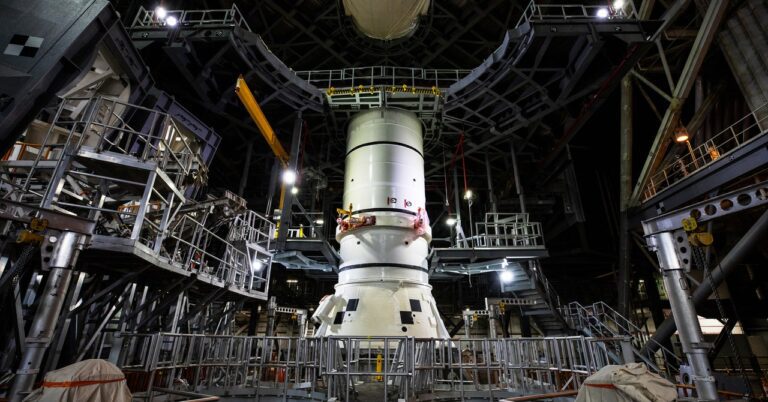
[ad_1]
If astronauts must seize some lunar ice on a future Artemis mission, that gained’t be an issue from a authorized perspective, says Rossana Deplano, a researcher on the College of Leicester within the UK who has extensively studied the Artemis Accords’ impact on worldwide house regulation. “What the Outer Area Treaty permits is utilizing assets if it’s in assist of a scientific mission. The Artemis missions are by definition scientific missions, so there may be nothing illegal for the US or different worldwide companions collaborating,” she says.
However the treaty additionally says that house exploration needs to be carried out “for the advantage of all peoples.” NASA and the European Area Company ceaselessly award contracts to non-public corporations, and a few of them are taking part within the Artemis program. If these corporations have their very own designs on the moon, that would create a authorized grey space. In the intervening time, Deplano argues, there’s nothing to cease NASA companions like SpaceX or Blue Origin from creating applied sciences whereas utilizing authorities funding funds, after which reusing these applied sciences individually—whereas utilizing the moon’s extraordinarily restricted ice and fascinating touchdown spots for their very own industrial functions.
Which means corporations from nations with superior house packages, just like the US and its companions, may get a head begin towards benefiting from moon exploration. “That is basically a privileged surroundings, which might permit sure parts of the world to develop a lot sooner than others—creating the expertise and know-how which might permit the industrial exploitation of these assets,” Deplano says.
Aganaba additionally foresees a attainable authorized conflict over personal mining sooner or later. The Moon Settlement of 1979, which was negotiated on the UN and signed by 18 international locations, starting with principally Latin American and Japanese European nations, places extra stringent limits on mining, stating that “the moon and its pure assets are the widespread heritage of mankind.” This attitude would complicate personal corporations’ efforts to extract and use these assets. The US and most main spacefaring nations didn’t signal the Moon Settlement—however Aganaba factors out that it has the same variety of signatories to the Artemis Accords, so it’s laborious to say which is able to carry extra weight.
Jessica West, an area safety researcher on the analysis institute Undertaking Ploughshares primarily based in Waterloo, Ontario, might be watching how the Artemis Accords apply in observe on the subject of defending the moon itself. The accords embrace a slender definition of “heritage” websites to be preserved—particularly, Apollo-era touchdown websites, however not the lunar panorama. Additionally they name for “sustainability” practices, that are restricted to stopping extra particles from accumulating in Earth orbit however not conserving house assets, West says. For instance, they don’t prohibit anybody from totally scouring a crater for ice, depriving future generations and fewer superior house packages of a vital useful resource, or visibly altering the looks of the moon within the night time sky.
And the accords solely apply the idea of worldwide “advantages” to science, to not the earnings an organization may acquire by, say, mining lunar ice. “What does it imply to have common profit, for issues to learn all humankind?” West asks. “That is a broad precept, nevertheless it’s not dictated in observe. Historically, that has meant the sharing of scientific data, nevertheless it hasn’t meant monetary advantages.”
Whereas the Artemis Accords mirror the US’s present imaginative and prescient for the moon, it’s unclear how future worldwide missions will play out, or whether or not issues about inequality will develop, says Johnson, of the Aerospace Safety Undertaking. “There’s all the time this problem of colonialism and first mover benefit,” she says. “Proper now, rich international locations have entry to the moon and they’re making the foundations. There’s not numerous fairness there.”
[ad_2]